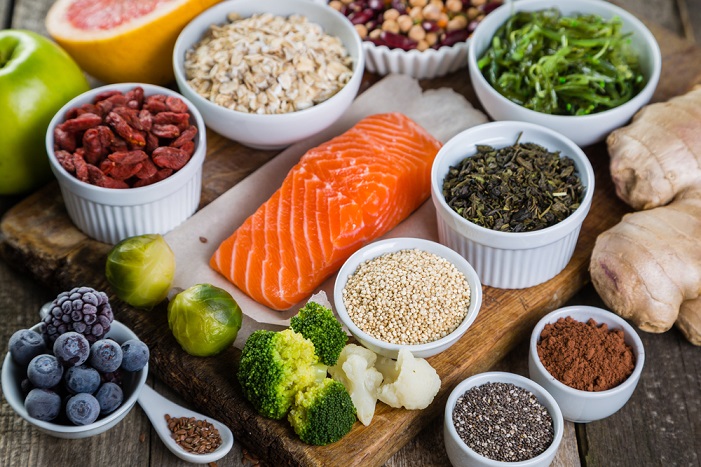
Optimal Wellness: Nourishing with a Nutrient-Dense Diet
Embarking on a nutrient-dense diet is a powerful step towards achieving optimal wellness. This approach involves prioritizing foods that are rich in essential nutrients, providing the body with the building blocks it needs for peak performance and vitality.
Understanding Nutrient Density: More Bang for Your Buck
Nutrient density refers to the concentration of vitamins, minerals, antioxidants, and other essential nutrients in a given food. Foods that are nutrient-dense offer more nutritional value per calorie, ensuring that every bite contributes significantly to overall health. Fruits, vegetables, lean proteins, and whole grains are prime examples of nutrient-dense choices.
The Power of Whole Foods: A Foundation for Nutrient Density
A nutrient-dense diet centers around whole, minimally processed foods. Whole fruits and vegetables, in their natural state, provide a broad spectrum of vitamins and minerals. Choosing whole grains over refined ones and opting for lean proteins like fish and poultry contribute to the overall nutrient density of the diet.
Balancing Macronutrients: Fueling the Body Adequately
A well-rounded, nutrient-dense diet includes a balanced proportion of macronutrients—carbohydrates, proteins, and fats. Carbohydrates from whole grains, proteins from lean sources, and healthy fats from sources like avocados and nuts create a harmonious balance that supports sustained energy levels, muscle function, and overall metabolic health.
Micronutrients Matter: The Role of Vitamins and Minerals
Micronutrients, such as vitamins and minerals, are essential for various physiological functions. A nutrient-dense diet ensures an adequate intake of these micronutrients, supporting everything from immune function and bone health to skin integrity and vision. Diverse, colorful fruits and vegetables are excellent sources of a wide array of micronutrients.
Antioxidants for Cellular Protection: A Defense Against Free Radicals
Many nutrient-dense foods are rich in antioxidants, compounds that help neutralize free radicals in the body. Free radicals are unstable molecules that can damage cells and contribute to aging and chronic diseases. Berries, leafy greens, and nuts are examples of foods with potent antioxidant properties, offering cellular protection.
Blood Sugar Regulation: Nutrient-Dense Foods and Metabolic Health
Choosing nutrient-dense carbohydrates, such as whole grains and legumes, supports stable blood sugar levels. These foods release energy gradually, preventing rapid spikes and crashes in blood sugar. This stable energy supply is crucial for maintaining metabolic health and avoiding issues like insulin resistance.
Fiber for Digestive Health: Supporting a Robust Gut
Many nutrient-dense foods are also rich in dietary fiber, promoting digestive health. Fiber contributes to regular bowel movements, helps maintain a healthy gut microbiome, and supports a feeling of fullness. Incorporating fiber from fruits, vegetables, and whole grains into the diet is essential for overall well-being.
Hydration and Nutrient Delivery: The Importance of Water
Water is a vital component of a nutrient-dense diet. Staying well-hydrated is crucial for the effective delivery of nutrients throughout the body. Adequate hydration supports digestion, nutrient absorption, and the elimination of waste products, contributing to optimal overall health.
Practical Tips for Nutrient-Dense Eating: From the Store to the Plate
Embracing a nutrient-dense diet involves practical choices both at the grocery store and in the kitchen. Shop the perimeter of the store, where fresh produce, lean proteins, and whole grains are often found. Plan meals that incorporate a variety of colorful vegetables and fruits. Experiment with herbs and spices to enhance flavor without relying on excess salt or sugar.
To explore a variety of high-quality nutrient-dense foods, visit Nutrient-Dense Diet. Nourish your body with the goodness of nutrient-dense choices and experience the positive impact on your overall wellness.
